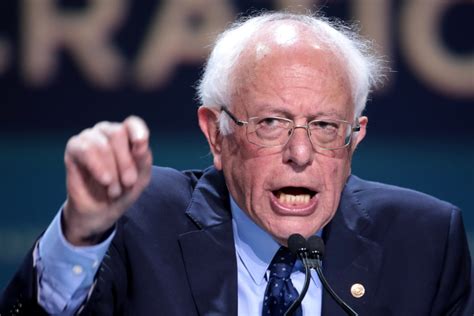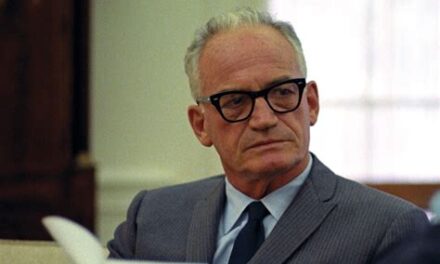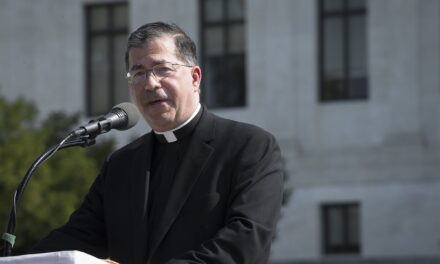I don’t know exactly how Bernie Sanders was invited to speak at convocation at Liberty University. Such decisions are as mysterious as pagan rites to a mere English professor at LU, such as myself. Anyhow, speak he did to a polite crowd. Could Ted Cruz count on such manners at the University of Virginia, with its denizens of political correctness sharpening their knives? Say what you will, I have my doubts.
Bernie at LU was applauded graciously and at times cheered enthusiastically (though I suspect more by a gaggle of local supporters than the students). All in all, his reception was as good as he could have expected, not unlike that of Ted Kennedy in the 80s and Tim Kaine recently. For a university so generally sneered at by the cognoscenti in Virginia, the plain truth is that at Liberty civility, even in the cutthroat theater of politics, still rules.
Acknowledging that, I have to say that even with the obvious futility of Bernie’s trying to woo LU’s students into joining his crusade, there was one reason only why he was there: to sway as many of LU’s students as possible into joining his crusade. And crusade is indeed the word to describe how Sanders presents himself and his platform.
Even for someone who has not carefully followed Bernie’s tenure in office, now going on ten years in the senate preceded by sixteen years in the house, it’s not hard to figure out what his political passions are: abortion, health care, LGBT rights, minimum wage, racism, and so on. But it’s the evils of the rich that informs almost every item in Bernie’s indictment of American life. I’m not the first person to notice this, but who could miss it?
Most of the speech, therefore, might be summed up in a few pat phrases: “A handful of people have wealth beyond comprehension . . . with more money than they would ever know what to do with . . . This is immoral and unjust; there is no justice when so few have so much and so many have so little . . . [and all in] a rigged economy.”
Laying aside some of the questionable figures Bernie floated for the audience (for example, that one-tenth of one percent owns almost as much as the bottom ninety percent), the lynchpin of his philosophy is easy enough divine, as it would be had he chosen to stand at the podium with his mouth shut: class warfare. A few are rich because of “injustice”—perhaps Sanders’ second favorite word behind “rich.” And we, that is, we politicians, must use the power of state to rectify this lamentable state.
Now for a couple of observations. First, if the rich have gained their special status due to a rigged system, who did the rigging if not politicians? As I’ve noted here in my review of Jay Costs’ book A Republic No More, a good deal of American history has been about a few—all told, very few—men using their influence to advance their pet interests using the power of the state. That Bernie thinks that his prescribed use of state power will result in less corruption, less misuse and plain waste of public funds to the benefit of the many and the detriment of the powerful, is downright naïve as well as a contradiction. Let
Bernie say what he will, Woodrow Wilson, FDR, LBJ, Jimmy Carter, Barrack Obama, and just maybe Bernie himself, all politicians of the same kidney, thought the same; yet their administrations saw abuses of the same or greater magnitude as those that turned the presidencies of the Gilded Age into so many political cesspools.
To the extent that the rich are so obscenely rich because of political corruption, I’m with Bernie: something should be done. However, and here’s the second observation, the greatness of America, which Bernie himself refers to, resides in its utter dedication to limited government, a truly exceptional proposition. Its opposite, Sanderism, if you like, is nothing new: centralization of power, concentration of money in the hands of the state via ruinous taxation, and an army of bureaucratic mangers to decide where the money goes. Will that patent nostrum promote change? Not so far, whether sold to the electorate by Republican, Democrat, or Independent.
As long as the stain of the Fall remains a feature of our sad condition, the temptations of power and money will be too great for the kind of success modern ideologues imagine their dream-systems will guarantee. Although that’s a reality that the lapsed Calvinist James Madison could not ignore, I suspect it’s irrelevant to Bernie whose statist paradise is just an election away.
Well, let Bernie dream, and in the interim, let civility reign, with this proviso: the original Sons of Liberty knew when to put manners aside and take out the tar and feathers.














